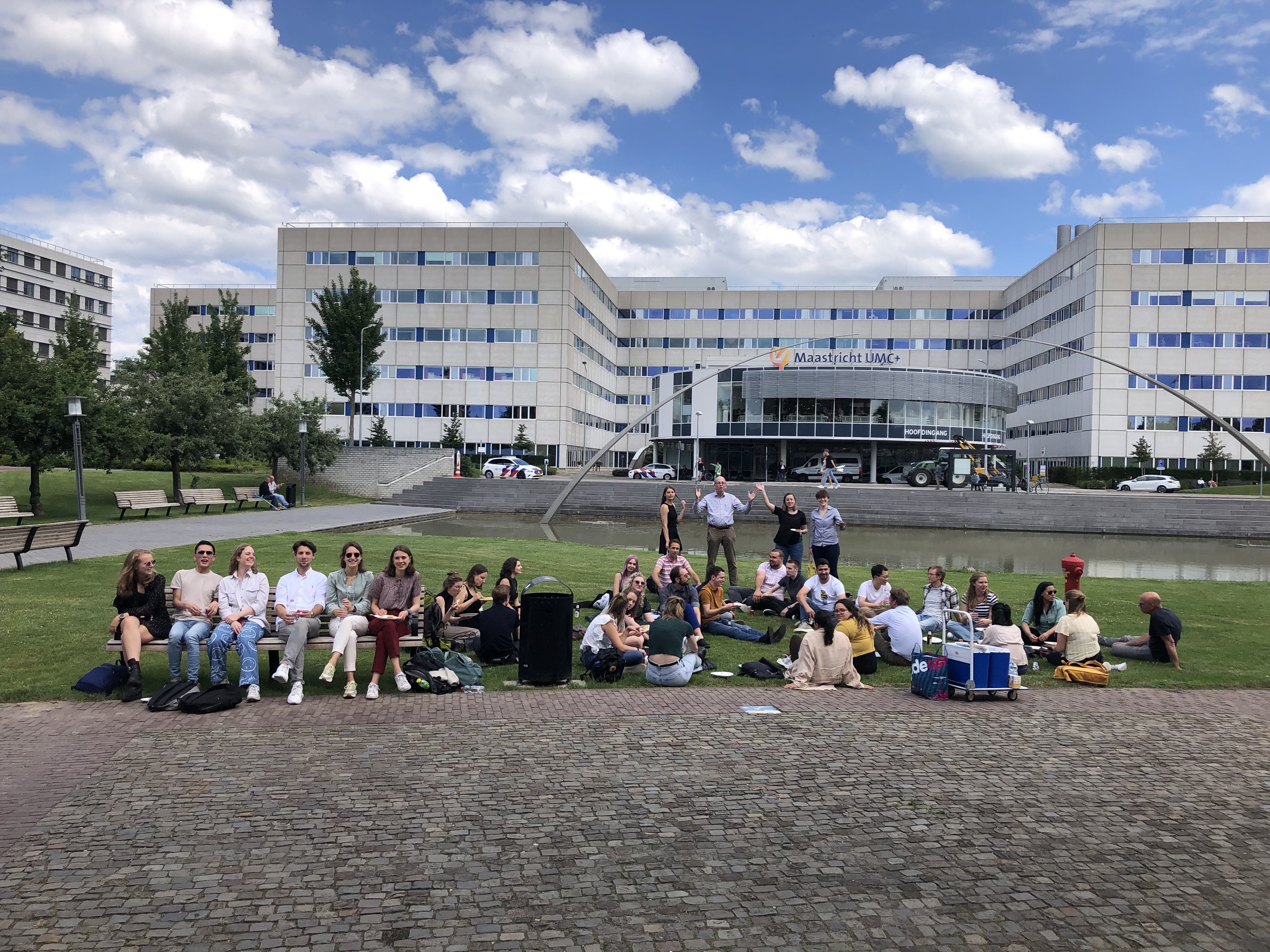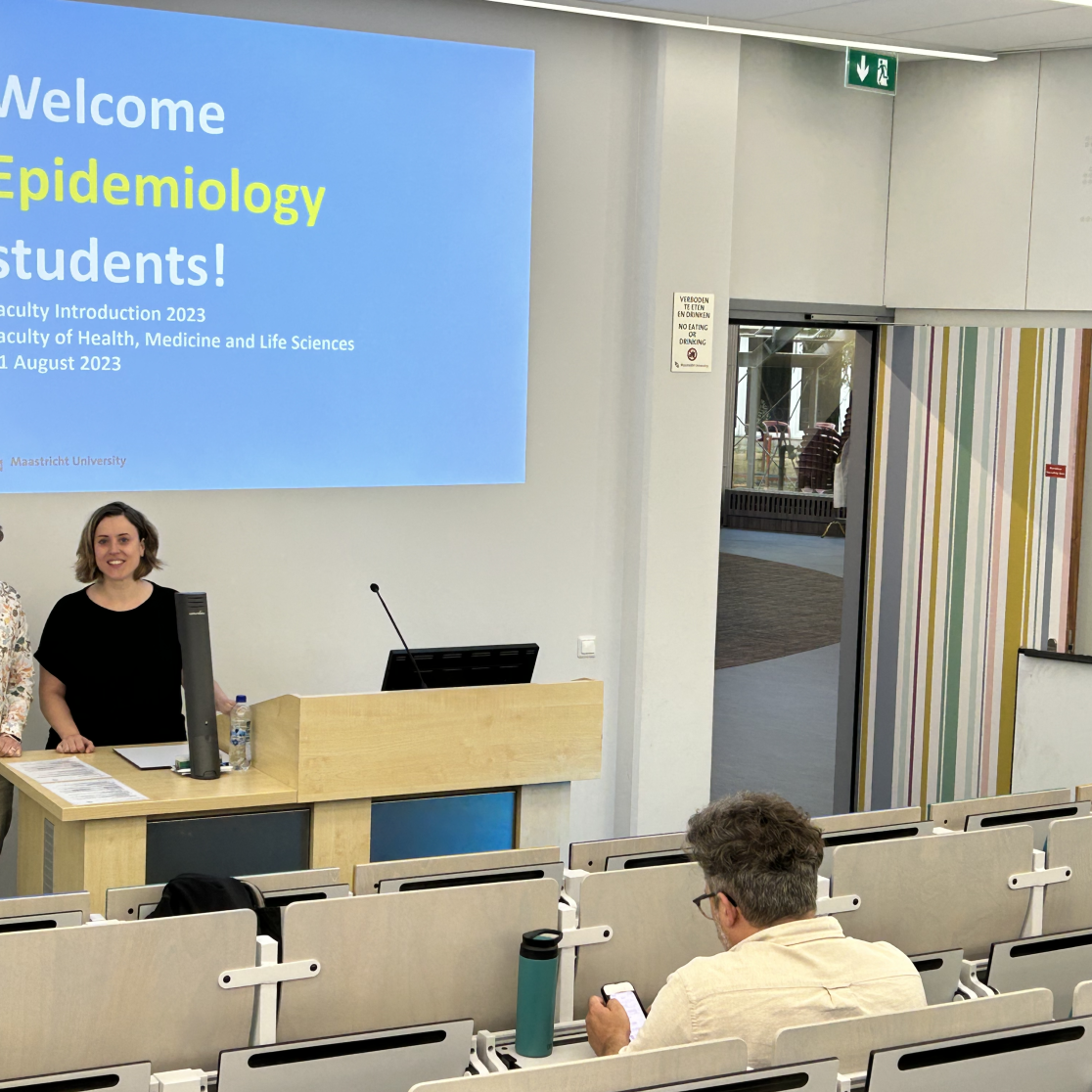Epidemiology: A path for puzzlers and critical thinkers
Considering the master’s programme Epidemiology at Maastricht University? As a student, you’ll join a broad one-year programme that continuously strives for improvement. After graduation you’ll be eligible to become certified as an Epidemiologist A, and after obtaining a PhD in epidemiology at the Department of Epidemiology at Maastricht University you’ll be eligible to become certified as an Epidemiologist B. Those are the conclusions of the visitation report by the Netherlands Society for Epidemiology, a unique institution tasked with upholding the quality of epidemiological education and research.
Leo Schouten, former programme coordinator and Associate Professor in Cancer Epidemiology dedicated his final year before retirement to meeting the quality demands of the Association. Now that the baton has passed to the new coordinator Colinda Simons, Leo can look back at his hard work for the master’s. "The visitation report is very valuable to us," Leo states. "We are assessed by our peers, epidemiologists from other universities."
A brief history of epidemiologists
Thirty years ago, the Association formulated a unique standard for epidemiologists. This set of requirements demanded proficiency in disease and health knowledge, research methodologies, and the ability to design and analyse valid research. The 1990s saw the introduction of two variants: Epidemiologist A, focused on conducting research, and Epidemiologist B, a role for PhD holders with leadership capabilities. Initially part of the Master of Public Health, Maastricht’s programme evolved into an independent master’s in Epidemiology, essential for professional registration. Since then, the Association has sent a visitation committee every seven years to check whether the programs meet the requirements for registration as epidemiologists and to write a report with remarks and recommendations for the programme.
The future of epidemiology
In the last report, the visitation committee engaged with staff and current students and allowed staff to select key focus areas to be reviewed: they chose the heterogeneity of the student population and the future of epidemiology. "We have a diverse cohort with students from various backgrounds. This diversity enriches our programme, as our graduates will interact with doctors, policymakers, and health scientists throughout their careers." The visitation committee was of the opinion that this was well organized and mentioned in particular the importance of Problem-Based Learning in this respect.
To further enhance the programme, staff organised a day to discuss the future of epidemiology. "A consensus emerged around the importance of AI and communication skills." The programme is already adapting by including elective courses on data science and clinical prediction models. While the ability to translate scientific research to the general public is still being developed, Leo acknowledges the critical role of science communication and assures it will be integrated into the curriculum.

A smooth transition between coordinators
This will be one of the tasks for Colinda Simons, who handled all educational matters last year and was appointed as the new programme coordinator in September 2023. In addition to the positive feedback from the Association, Colinda also received advice to make a profile of the master’s and to increase the student population. Colinda: “The committee asked about our profile at the beginning of the day and was able to answer their own question at the end of the day after further discussion with staff and students: we have a broad programme, covering all fundamental aspects of epidemiology. We need to promote that more, without having the ambition to grow too much. Although we would like to grow a bit, we enjoy our small student population because there is close contact between staff and students.”
Colinda and Leo both feel that the transition of tasks between them ran smoothly. Leo: “I have confidence in Colinda, the programme is in good hands with her“. Colinda: “We also worked together on research, so we know each other well.”
Daddy counts sick people
Although the cooperation between Leo and Colinda is solid, they each have their particular view on explaining epidemiology to prospective students. Leo: I always say, you have to be into numbers and Excel sheets. Colinda: “I’ve added that you have to enjoy puzzles and critical thinking. To help explain the programme at Open Days, I show a fun children’s book called ‘Daddy counts sick people’, written by a Belgian epidemiologist who tried to explain his occupation to his children. Leo: “Which I was able to do also because my son works on the floor above my office as an epidemiologist.”
Leo can enjoy retirement, knowing he will still be connected to our faculty via his son, Colinda, and his other colleagues at the Department of Epidemiology. All are thankful for the way Leo reshaped the master’s programme, ensuring students will graduate as professional epidemiologists, with a broad knowledge of research methodology ready for all fields in health.

Also read
-
More than a student job: five alumni about their unique role in groundbreaking vascular research
What is it like to take part in cutting-edge vascular research as a student, standing in the operating room, directly responsible for handling patient material? Five alumni of the Maastricht MAPEX student team share what they learned, the challenges they faced, and how this experience shaped their...

-
Sophie Jooren - Compliance to local tobacco policies
Whether a specific intervention to create a smoke-free outdoor environment is effective or not has been widely studied. However, to improve compliance, policymakers need to understand how smokers react to those interventions and the factors influencing their compliance.

-
Sweeteners help maintain weight loss after dieting
Overweight people who want to lose weight successfully are better off supplementing their healthy diet with sweeteners than with foods containing sugar products. An international study, in which Maastricht University (UM) participated, shows that people who supplement their diet with sweeteners are...
